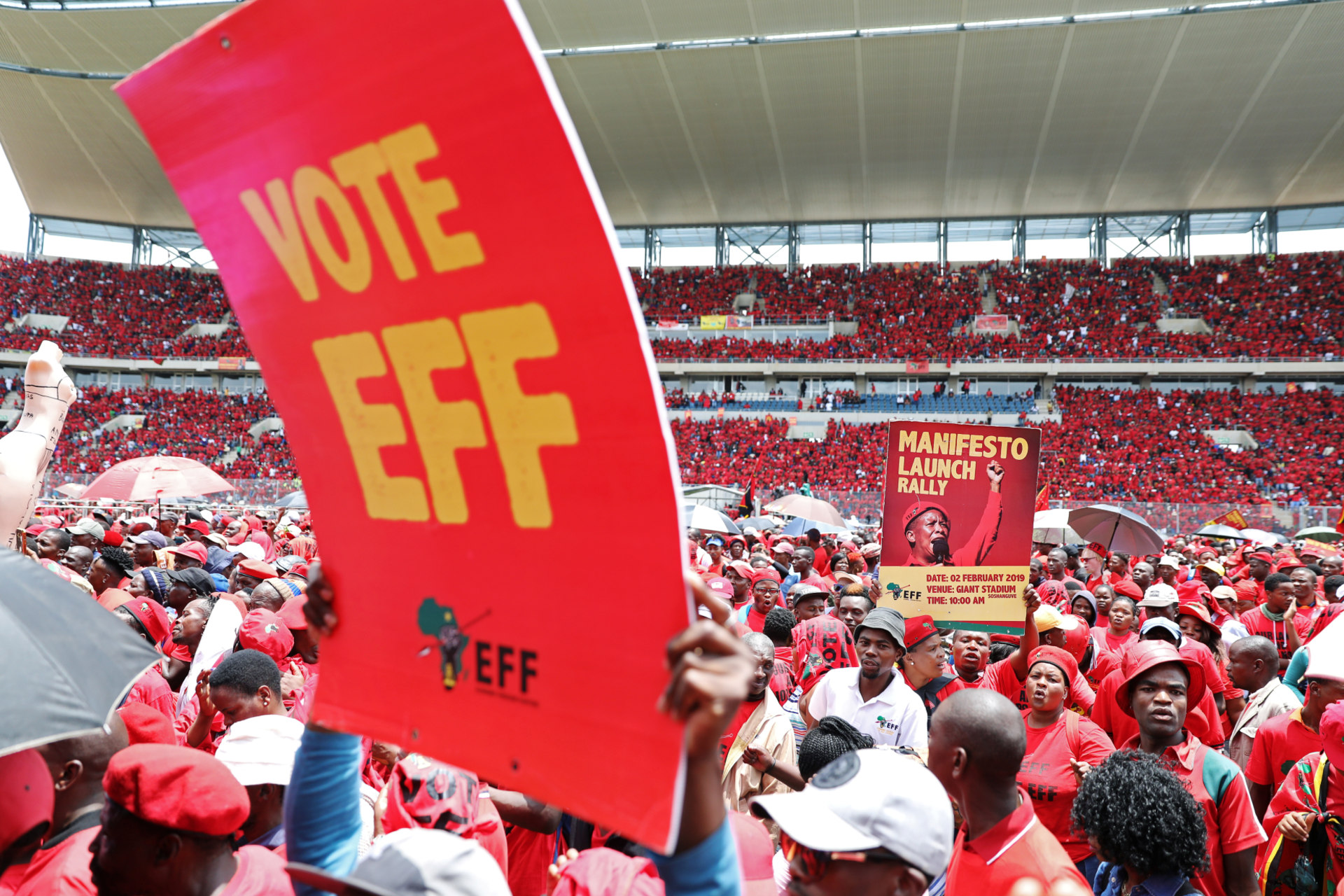The EFF’s Election Outlook in South Africa

By experts and staff
- Published
By
- John CampbellRalph Bunche Senior Fellow for Africa Policy Studies
South Africa’s national elections on May 8 are likely to be dominated by the governing African National Congress (ANC) and the official opposition, the Democratic Alliance (DA). However, the third largest party, the Economic Freedom Fighters (EFF), is likely to continue to benefit from outsized media attention because of its economic radicalism and its anti-white stance. In the national elections in 2014, its first election after being founded in 2013, it won 6 percent of the vote, and in local government elections of 2016, it won 8 percent.
Most observers think that EFF’s will hit a ceiling of around ten percent of the vote. Among other factors, it does not have the grass-roots organization and funding that the ANC and the DA enjoy, nor does it have access to the patronage that does so much to sustain the ANC. On the other hand, its leader, Julius Malema, has charisma, and he is popular in the townships. The ANC is widely perceived as corrupt, while the DA is yet to overcome the perception that it is the political party of whites. Some South Africans see the EFF as providing the left-wing alternative that the country’s poor need. But, Malema’s behavior can be erratic and unpredictable, and EFF policies are little more than populism with an anti-white coloration. The EFF is also largely untested in the rural areas, the bulwark of ANC support. Further, its disruptive tactics that include the threat of violence and intimidation on the floor of parliament are seen by at least some South Africans as antithetical to parliamentary democracy.
If, contrary to most predictions, the EFF exceeds ten percent of the vote on May 8, the ANC, in response, would likely move in a more radical direction. That could jeopardize Cyril Ramaphosa, now the party leader and chief of state. He is seeking to revive the economy through increased investment and other reforms in the context of free market capitalism, but he continues to face significant opposition within the party associated with the ousted Zuma. With a significant increase in parliamentary seats, the EFF could even contemplate displacing the DA as the official opposition sometime in the future, especially if the latter falls significant below the 22 percent of the vote it achieved in 2014. However, under even the most optimistic scenarios, the EFF is unlikely to be able to displace the ANC as the ruling party anytime soon.
If, however, the EFF’s results on May 8 are disappointing, internal pressure within the party to merge with the ANC is likely to increase. Julius Malema is a former leader of the ANC Youth League. He broke with Jacob Zuma in 2012, then the ANC party leader and chief of state, ostensibly because Zuma was not “radical” enough, that is, Zuma was not moving to redistribute wealth from the white minority to the black majority. Malema founded the EFF soon after and apparently received a subvention from Robert Mugabe, then president of Zimbabwe and known for expelling most of that country’s white farmers. But, there was also an important personal dimension to the Zuma-Malema quarrel, and Malema would go on to lead the chorus of those opposed to Zuma’s corruption and the “state capture” by his cronies. Now that Zuma is out, however, at least some of the original rationale for the split is gone.
Should a merger happen, the EFF would likely constitute the new left wing of the ANC, further to the left than the South African Communist party (SACP) and the Congress of South African Trade Unions (COSATU), both of which run candidates under the ANC umbrella as part of a parliamentary Triple Alliance. It is unclear whether the SACP and COSATU would remain in the Triple Alliance should the EFF merge with the ANC, especially if Malema’s influence were to increase. It is also unclear whether the EFF, merged with the much larger ANC, would retain much coherence beyond loyalty to Malema.